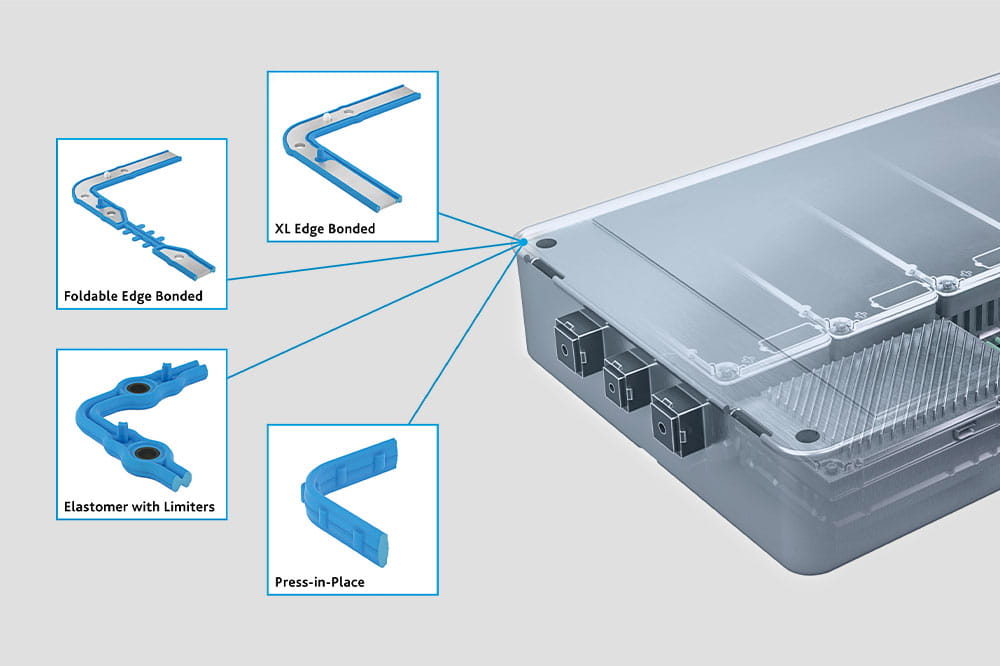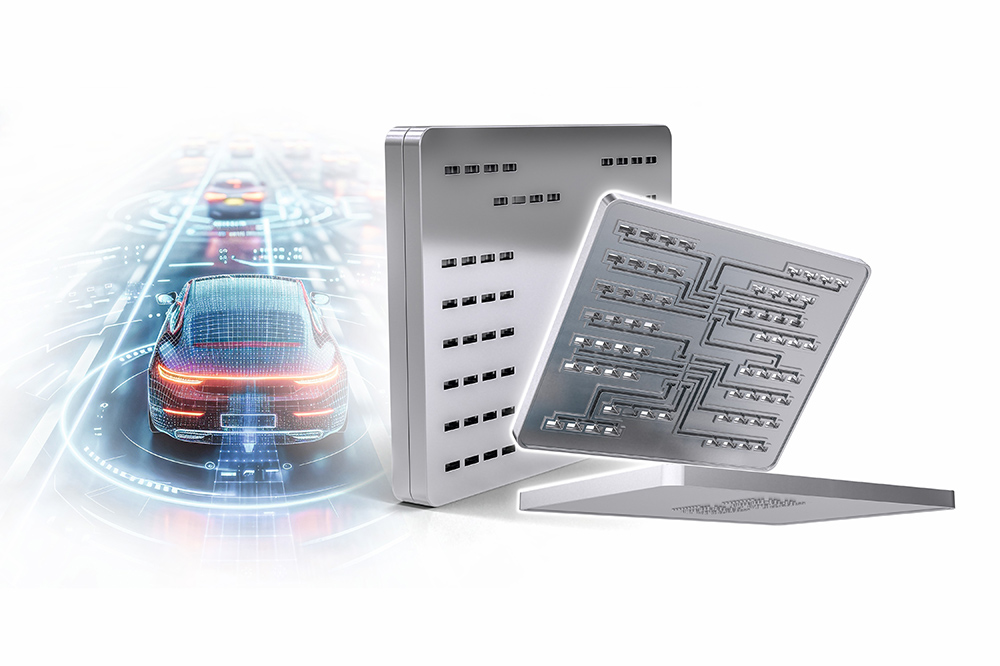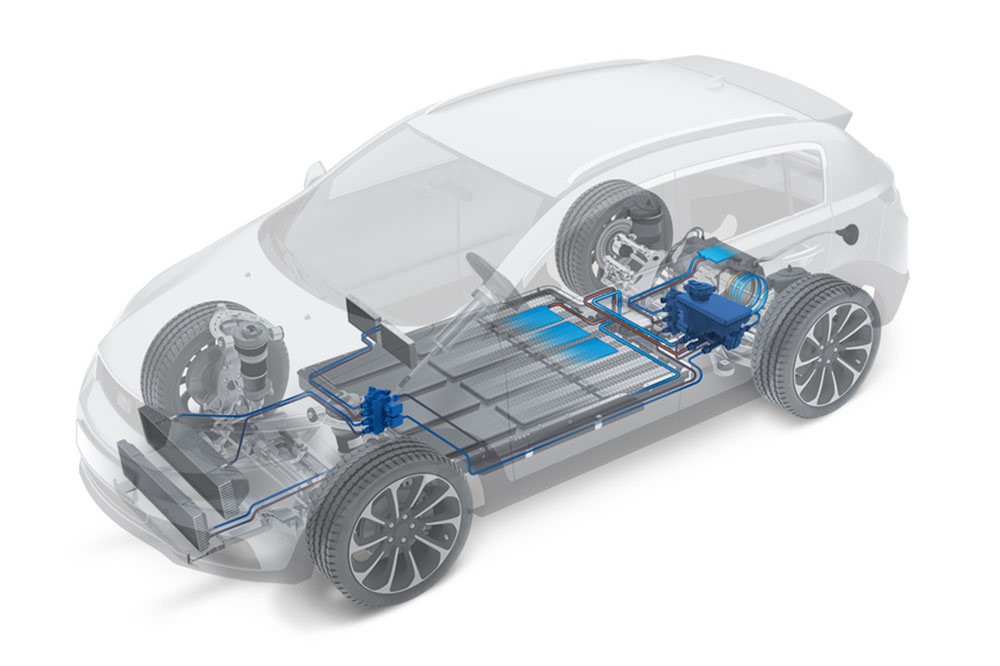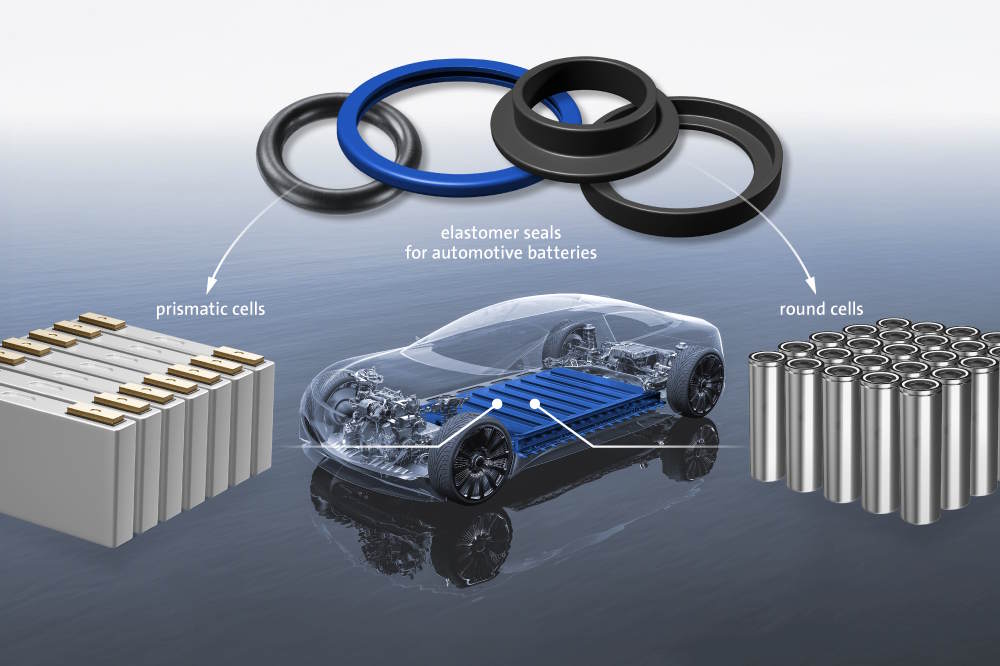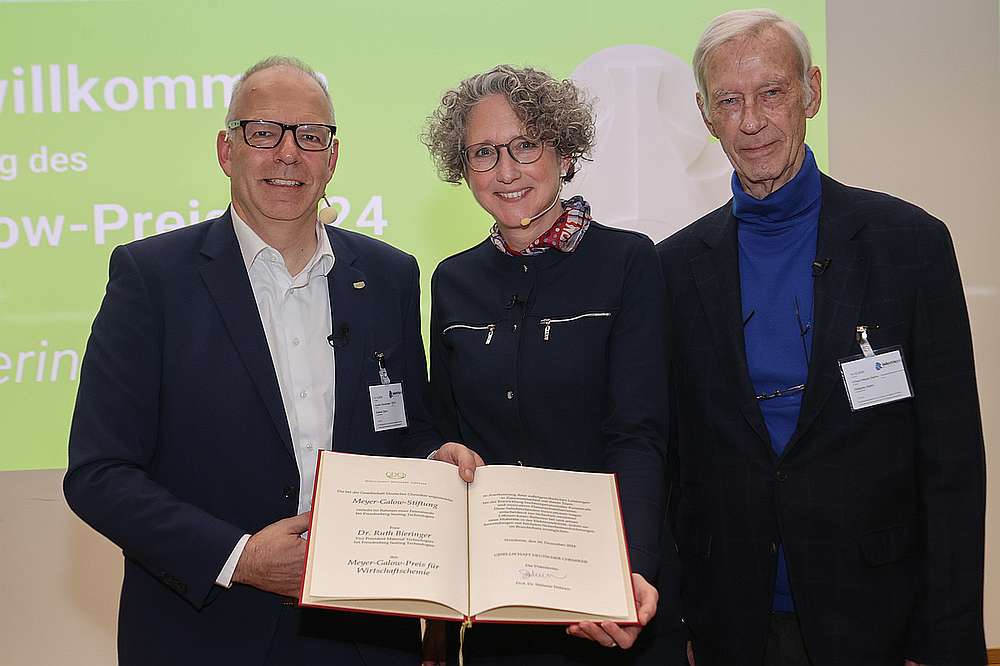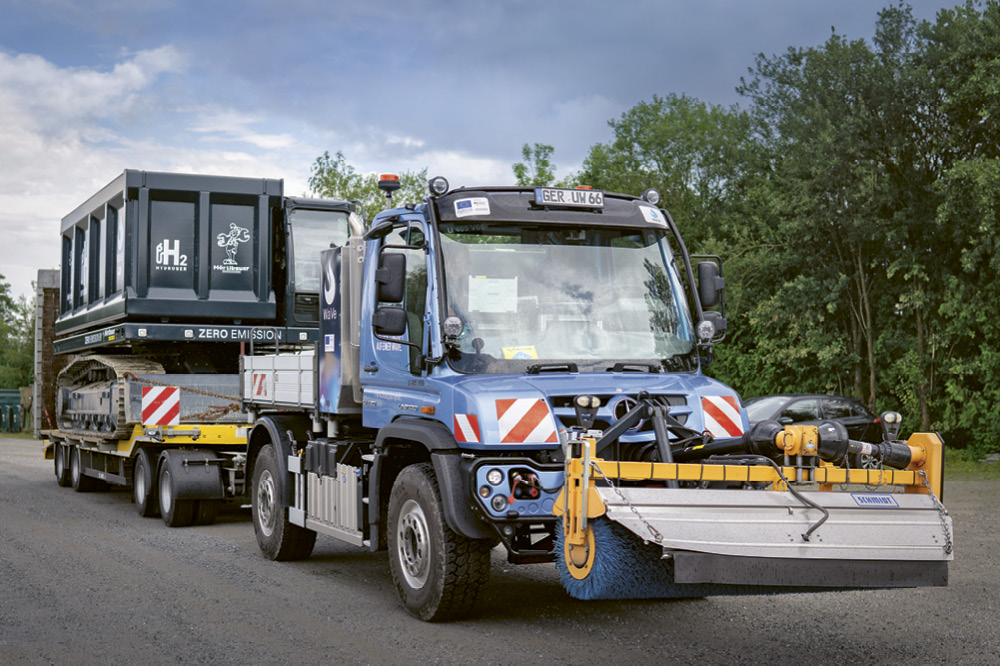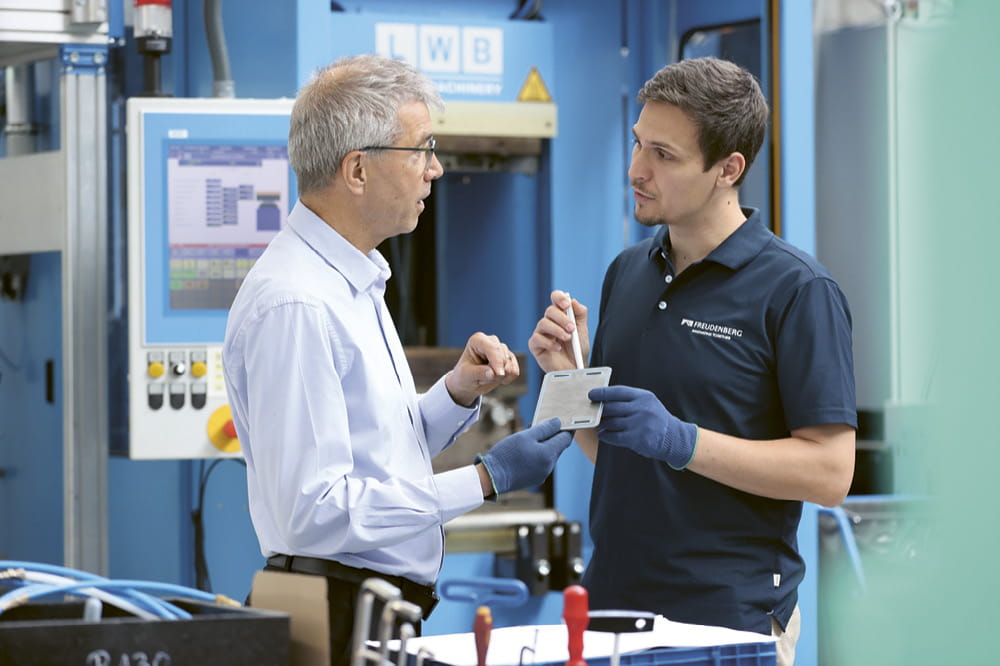Obtain news and background information about sealing technology, get in touch with innovative products – subscribe to the free e-mail newsletter.
01.12.2020 | Story
"You Have to Understand Markets and Customers to Succeed"
Freudenberg Sealing Technologies had already forged ties in South America and Asia in the 1960s. Today, the company has a global presence, with 70 plants around the world. CEO Claus Möhlenkamp talks about locations, business responsibility and globalization as a positive force.
Mr. Möhlenkamp, in an interview in 2019, you stated: “We are wherever our customers are.” Does that still apply in a pandemic?
Claus Möhlenkamp: We have continually cultivated our ties with customers during the pandemic. The communication is handled differently, but it is very effective and it involves the same spirit of trust. I even think that our exchanges have been much more intensive over the last few months. They have especially focused on production planning and the ability to supply our products. And yes, the statement still applies, even if the challenges posed by travel restrictions and hygienic practices are making direct, personal cooperation more difficult globally.
We are wherever our customers have their respective markets.
Global cooperation offers opportunities: CEO Claus Möhlenkamp talks in the ESSENTIAL about globalization, trade policy and Covid-19.
What does that mean?
It means we set out into the world with our customers. Today, we are wherever our customers are at work in their respective markets and there is a need for our products. Our principle is “local for local” – manufacturing locally for the local market. For example, in China for China. The same applies to India, the United States or Europe.
That is helpful if supply chains are disrupted.
It’s a huge help. So far, we haven’t had an interruption in customer deliveries. And our suppliers have continued to supply us. Even in the case of our internal supply chains between individual plant sites, there have been no significant disruptions.
You’ve touched on something important there: “facilities” are a major issue, especially since the coronavirus emerged. How will this issue unfold?
Having a range of facilities makes good sense in a globalized world filled with supply chains that are rather complicated. Our plant policy generally has two aspects. We are strengthening our customers and supporting them in their market. We also keep an eye on demographic and economic trends. Where are new markets emerging and increasing demand for our products and services? And where can we find a highly educated workforce? Of course, the outlook and our assessment will change based on our experience with the pandemic, and it already has, though perhaps less in the direct manufacturing environment. The change has mainly been in mobility and digital communication. The pandemic’s impact on manufacturing at Freudenberg Sealing Technologies has varied tremendously. The auto and aviation sectors, among others, have been hit particularly hard.
What lessons have you learned that go beyond the coronavirus?
Travel, in-person activities, personal contacts, trade fairs and major events have been key features of the past few decades. The pandemic changed that virtually overnight. We shifted to digital tools incredibly quickly. When I look back, it seems as though I have never worked any differently than I did over the last six months. For example, I haven’t made an intercontinental trip since March. All appointments are scheduled online and carried out by video. This has all worked flawlessly from a technical standpoint and has been extremely efficient. Still, I made my first visits to production facilities as soon the travel rules and the COVID-related limitations permitted. It’s hard to describe how great it was to get together and meet with people in-person again. Nothing will replace personal contact. It will continue to be an element of our work in the future.
Are you unsettled by the growing tendency of governments to close off their countries?
No, although it is aggravating and hard to understand at times. In the past, there have been protectionist efforts and trade restrictions by individual countries again and again. As a company, we’ve been able to deal with them and adapt. Think about the trade conflict between the United States and China. So far, Brexit has certainly been something of a unique phenomenon. There are military conflicts and natural catastrophes. We are an agile company and can make the adjustments.
Personal contact cannot be replaced. It will still be part of our work in the future.
Do you see major business differences between regions?
Our business largely operates under the same assumptions worldwide. For example, our standards in manufacturing and for environmental protection, job safety and quality have been aligned worldwide over the last few decades. What I have observed is rather a clear shift in demand due to demographic developments. Asian countries, especially China, have been catching up and making enormous strides. The trend will continue to grow.
How important is the concept of “culture”?
Culture and language are tremendously important. That is another reason that we want to be on site locally. You have to correctly interpret and understand the market, customers and the entire economic environment to be successful. We do this operationally with local structures, processes and value chains, along with a sense of social commitment. This doesn’t work with so-called “expats,” that is, employees whom we send to China or India, for example. We are proud of the fact that we’ve been able to fill all the management positions with people from the region.
In your view, what is the special aspect of globalization?
Let’s do a thought experiment: What would the world be like if there was no globalization. We would have many small states with customs barriers, different currencies and legal requirements. There would be a range of conflicts, over raw materials, for example. There would also be more hunger, war and migration. We know all this from history. By contrast, global cooperation offers the opportunity to tackle humanity’s problems that cannot be solved by a single player in a compartmentalized world. Climate change and the growing pollution of the environment are the types of issues that can only be handled as a community. On the other hand, there are countless positive trends. Today, many more people have access to health care, education, water and electricity than a few decades ago. That’s the foundation for growing prosperity in many parts of the world.
Claus Möhlenkamp

The CEO of Freudenberg Sealing Technologies was born in Wildeshausen, not far from Bremen, in 1965. He studied industrial engineering with a focus on mechanical engineering and joined Freudenberg in 1994. He later served as Vice President of the Freudenberg NOK General Partnership Plymouth (USA) as well as Latin America. He has been the CEO of Freudenberg Sealing Technologies since 2011 and is responsible for strategic development, sales and marketing, as well as HR and communications on the leadership team.
More news on the subject Automotive & Transportation

Join Us!
Experience Freudenberg Sealing Technologies, its products and service offerings in text and videos, network with colleagues and stakeholders, and make valuable business contacts.
Connect on LinkedIn! open_in_new



